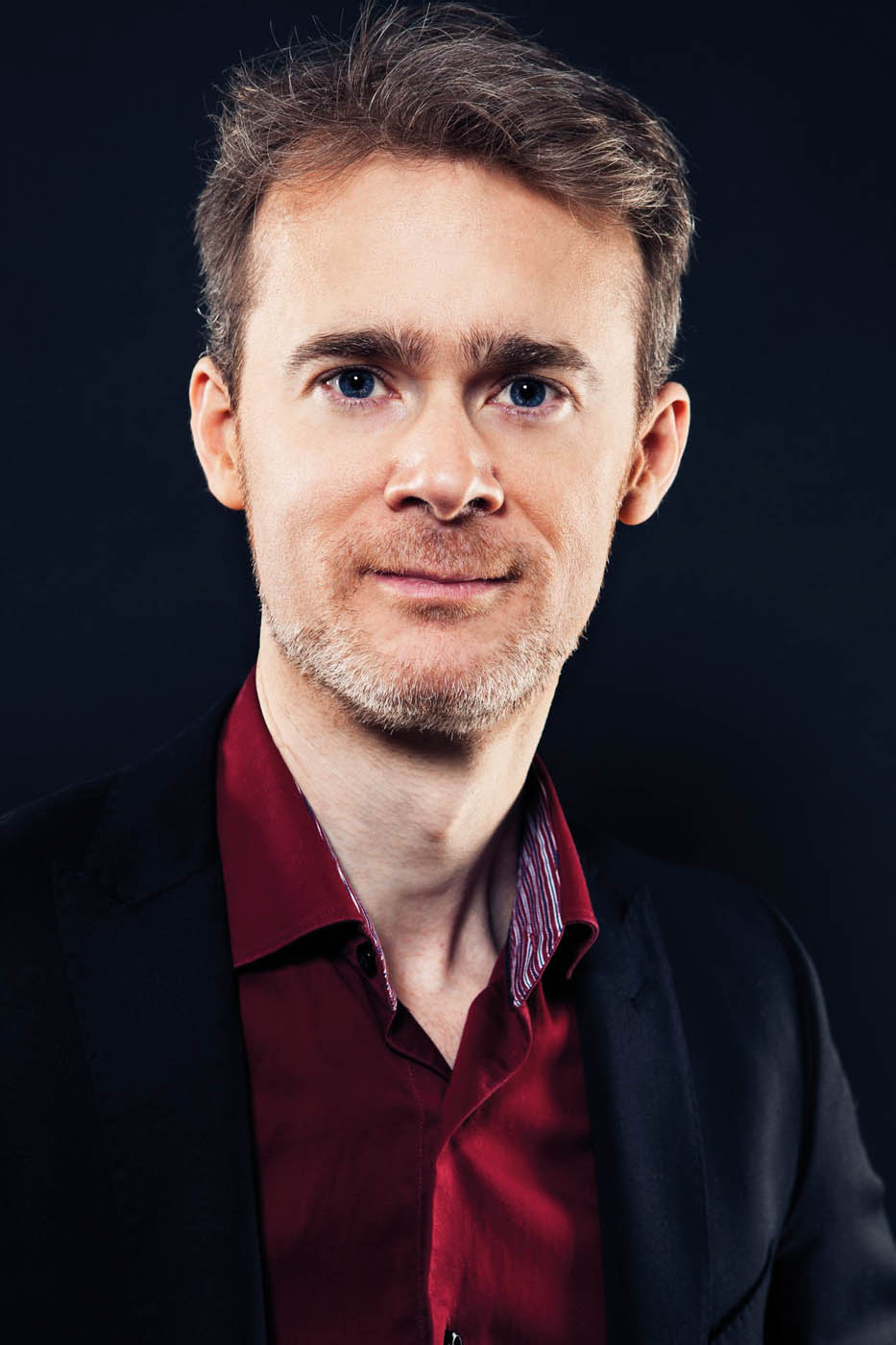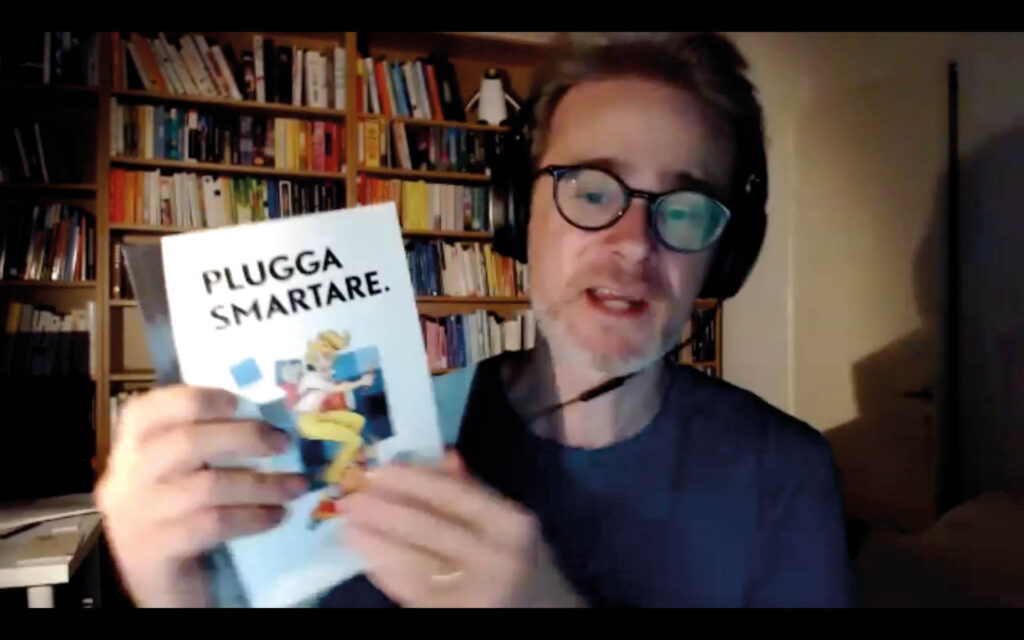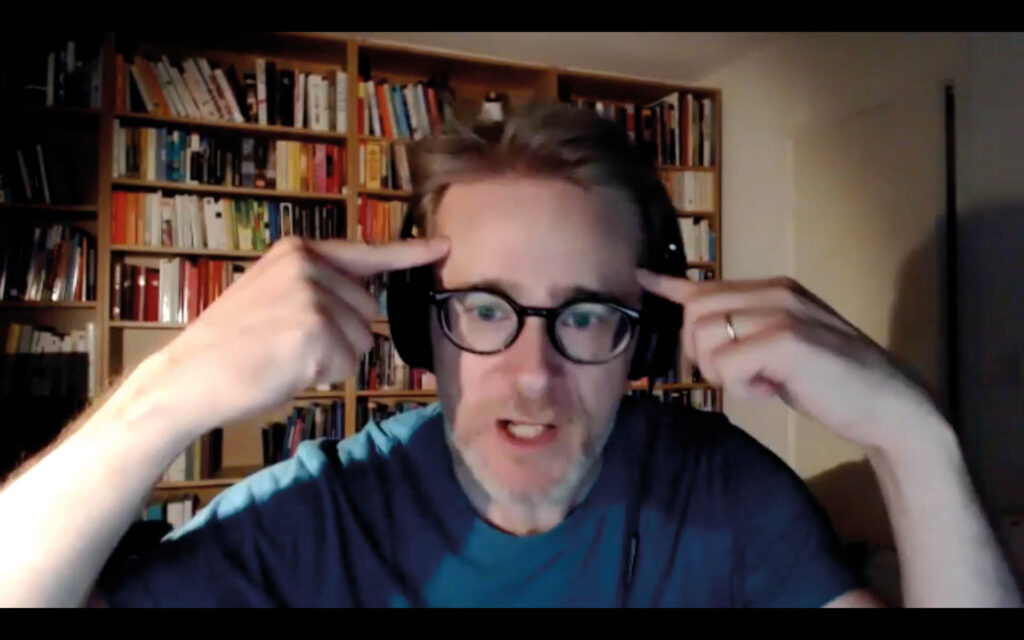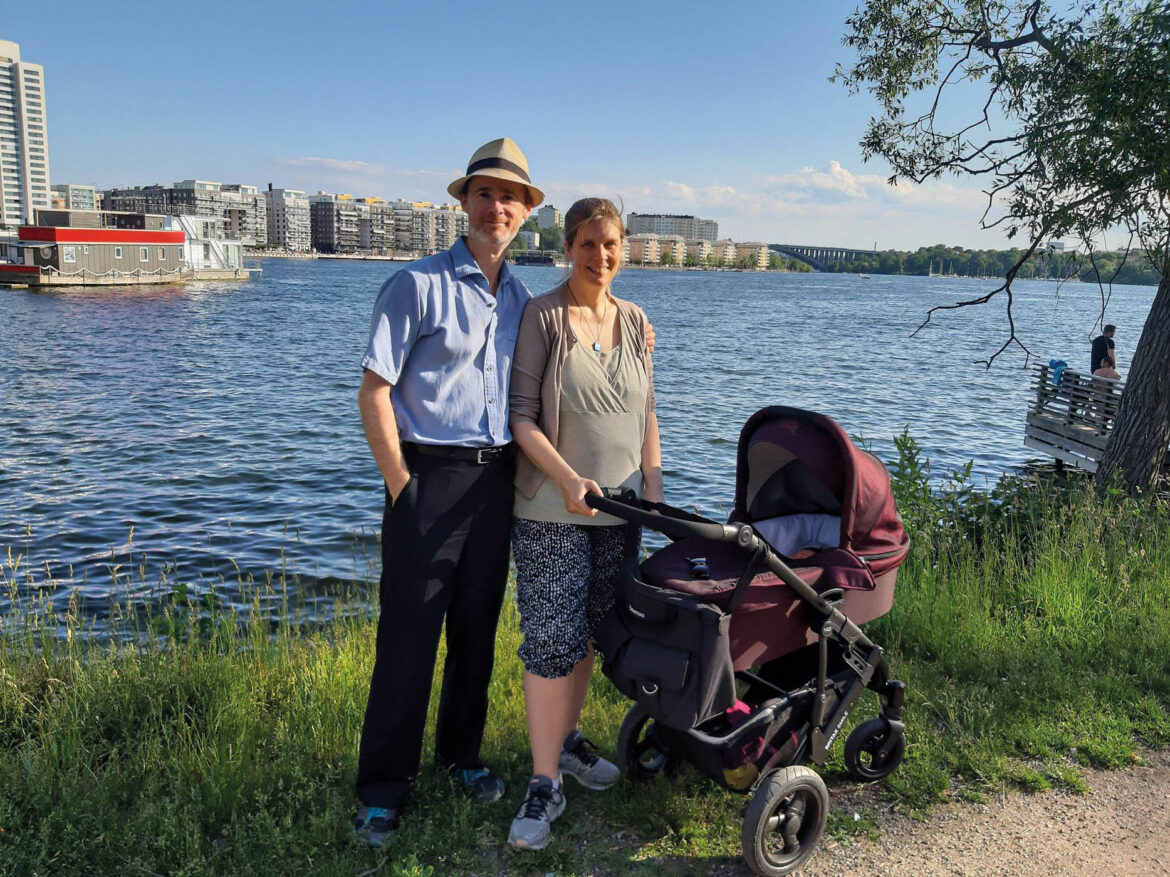
mensanthropist [ men-san-thruh-pist ] noun
a person, who actively participates in fulfilling one of Mensa’s objectives by fostering and utilizing intelligence for the benefit of humanity
For this episode, I discussed fostering and applying intelligence with Björn Liljeqvist, the new chairman of Mensa International.
Björn was born in 1975 and joined Mensa when he was 15, inspired by a substitute teacher who turned out to be Board Member of Mensa. Last year he got elected to the position of Mensa International Chairman with an ambitious goal to bring the international organisation and coordination on par with national Mensas to serve as a platform for truly fostering intelligence on an international level…
I read that your specialty is advanced learning strategies and embedded systems. This is quite an interesting combination. Which came first how did you get to the other one?
I studied electrical engineering at the university, and I also taught at the university in computer engineering and programming and stuff. Then I had a hobby, which was how to improve memory and speed reading, and how to develop mental powers. I started giving courses to students, and gradually over the years, I acquired more and more knowledge about it. I started a little business giving lectures as a side project, and eventually, I had enough business going on that I could actually support myself on it.
I felt that I wasn’t really making much of a difference to the world by being an engineer, it was more meaningful to teach. I have written two books, this is my second one [showing the „Plugga Smartare“ title]. I’ve also given lectures at Mensa meetings about learning and how to improve memory and reading skills and time management and so on. Now I do this full time.

So was it like a built-in natural need to mean something for the world, what took you in this direction?
My personality is such that I need to feel that what I do is meaningful. Working for Mensa, for example. I put in a couple of hours every day. That wouldn’t really be possible if I didn’t feel that it’s important. Also having your own business means that I have no boss, I am my own boss, and this freedom is quite important to me.
Does you electrical engineering background affect the way you visualize things like how brain or learning works?
Yes. As a guest speaker and lecturer on learning, my approach to it is taken from the engineering mindset, as in: Here we have a problem to solve and how can we solve this problem by improving our technique, if not necessarily technology? When I give lectures to teachers, often they will say things like: „I wish they had talked about things like this when we were studying to become teachers.“ The engineer knows, if you want to solve a problem, you shouldn’t feel too much. You should simply split it up into smaller problems, see if you can find a pattern, the system. I can see patterns and build systems and I simply apply that to learning.
I developed my interest for this was back in 2002, when I came up with an idea for how to remember Japanese characters. I came up with a mnemonic system for remembering their pronunciation. When I discovered that, hey, this works, wow, I can actually remember this, it made me wonder, if I can come up with more systems. That was when I started to constantly look for the best learning strategies for all sorts of topics.

I also read that you are interested in social and political aspects of intelligence. What do you think about inclusion at schools, having children in one class together regardless of their skill level?
In Sweden, what you’re describing was the mainstream for many years and now the climate is changing and politicians and teachers start to understand that gifted children also need special support. They don’t really have special classes so much, but it’s at least possible in a way that it wasn’t 20 years ago. This idea that everyone should be together and if you have one child very intelligent then he or she can be an example to the others, I find that absolutely offensive, because it’s like they don’t consider the needs of that person. They think of that person as an object for other people’s benefit, and I am very much against that.
It seems that inclusion, to work, requires a lot more highly qualified teachers to handle all differently skilled children in a single class…
And those teachers often don’t exist. In Sweden the status of the teacher profession has gone down quite steadily for for many years. The brightest students become lawyers, doctors, engineers, but not teachers. The students who do become teachers often tend to be academically weaker, so it’s going to be difficult for them to teach the intelligent kids.
A good teacher of average intelligence can probably be trained to teach children of lesser. But in order to teach those on the right side of the bell curve, and particularly the ones within the top percent, I don’t think that is possible. You need teachers who are themselves very bright in order to teach those kids because they are not stupid. They can tell. I remember myself as a child, if there was an adult teacher who was very, very bright, I got a natural feeling of respect because I understood that, hey, that person actually understands me. You want to grow up feeling respect for the older generation. Some of the most intelligent people should study to become teachers and they should teach the brightest children and young people.

I don’t think that it is good necessarily to separate the most gifted ones from the other children all the time, there are many things that they should do together. But in some subjects, like mathematics, physics or languages, we shouldn’t force the gifted kids to slow down to the average level. Also the social aspect is often forgotten. It’s not just as a child that you want to learn more, you also want to have friends. You also want to be able to socialize with people of your age who understand your jokes.
When I was 16 I was fortunate to be able to go to a special high school with more advanced mathematics. We were able to actually have a group of people with high intelligence. And I liked the feeling of not having to feel smart. When we talked, we didn’t talk about how bright we were. We talked about interesting things.
I have this expression that I like to use, which is „intellectual resonance“. I think because it’s my experience that you respond in sync, your brain resonates at the same frequency. So you get this enhanced experience,
Do you think that this push towards inclusion is more coming from politics?
I have to add that any opinion that I state here is my opinion and not the opinion of Mensa, which is more abstract and avoids politics. But I would say that. A good question to ask is: Are we doing this for the sake of the children or are we doing this for our own sake, rather than making life better for them? Or even worse, some people think that the gifted kids are only gifted because of some unfair advantage, and therefore we have to equalize this unfairness. I think it is offensive.
We actually do foster some other kinds of talents like sports or music. Why not intelligence?
That’s a very common question in Sweden, because we have always had special schools for sports and also music. But not for mathematics or physics. That is changing now, and one of the things that make me happy is that Mensa in Sweden has actually worked to increase awareness of this.
Why is that? I personally believe that a lot of our norms, morals, ethics and behaviors are influenced by our ancestors two hundred thousand years ago, and I think that we evolved to be very skeptical of people who tried to get power. Intelligence is so closely related to power or dominance, whereas if you’re good at singing, that’s less conspicuous. At least that’s the instinct we have.
You probably noticed the trend of technology going towards making things easier to use, such as so called low-code platforms. Do you think there is a risk in decreased need of talents?
Ultimately, I would have to answer no. It is true that many skills kind of go away, but you will you still have the pressure of competition. You can do many things automatically, but our expectations are still going up. So we still have to use our talents. I don’t believe in evolution as a moral guideline, but I strongly believe evolution is a fact of life we have to learn to deal with, like we deal with other facts of nature, like electricity, gravity, viruses, entropy etc. And competition is almost like a law of nature. For example, people don’t read long texts anymore. So if you want to write something that people will read, you have to be very good at writing. I think it’s a constant that technology makes something simpler, then people have to become better at something else.
I have also read that you consider the right to foster your talents or intelligence one of the base human rights. Could it be time to update the Universal Declaration of Human Rights?
It’s an interesting idea. I don’t yet know exactly how to phrase it…
Like everyone should have the right for education at their level?
That’s kind of where I was going. If you have an obligation to participate in education, then you should absolutely have the right for education at your level based on your talent. I think in Article 26, you could add one point or rewrite one. It says elementary education shall be compulsory, which means that is not a human right. That is a lack of right. If I have to go through some kind of education, it should not be a torture. It should not be a prison for gifted children.
When I started this series of articles, I thought of going a little bit farther from identifying and fostering intelligence to actually utilizing it. And I think your concept of collective intelligence is very close to it. Does your inspiration for this come from distributed computing?
Well, kind of. But also Mensa itself as an organization, because I had seen in Mensa that under certain conditions, a group of intelligent people will be an intelligent group and they can do amazing things, while under different conditions a group of intelligent people can be a complete disaster and they will fight each other and they will not accomplish anything. Collective intelligence is very much a real thing. It’s similar to computers, you need the right architecture, you need the right software, you need the right stack of different levels. Actually, this is sort of my goal as chairman, I want Mensa International to become a more intelligent organization. We already have the intelligent people, but we also need to get the right intelligent people in the right positions.

I’m going to borrow a quote from computer science. I used to tell students that the computer processor is not aware of that it is being used to run software. You build the processor to run instructions one after another, and then it’s up to the software to use that to build the next layer. In the same way, if you have a good organization, then the members will be able to use the organization as hardware. To realize their own applications and programs and goals.
For example, if some members want to organize something for research or making the world a better place somehow, then Mensa should be able to help them find other people and giving them tools to meet and coordinate and do things. But it should not be Mensa who is doing those other things.
I often see Mensa members feel like we’re just a social club, we should do something for the world. Yes, let’s stop climate change. And there’s nothing wrong with that. But then some other people say no, the most important thing is animal rights. We should stop the killing of dolphins and whales. And then someone has to say no, the most important thing is artificial intelligence and stopping Skynet from taking over the world. You see what I mean?
That is an actual danger to Mensa, if we forget our real purpose, that members should be free to apply the hardware that is the Mensa platform to run their own programs. We have 140000 intelligent people across the world. But if you want to find 100 people who share your passion for something, how can Mensa help you do that? We have to become much better at it.
What advice would you give to someone seeking ideas to apply their IQ in a way that will be good for the whole world?
It’s quite important to keep in mind that there is a correlation between intelligence IQ and success in life. How can we make that correlation stronger? If you have a high IQ but you don’t learn how to apply it, if you are not guided, it is possible your talent will go to waste. To promote intelligence means to make the correlation between IQ and achievements and all the other good things stronger. So, teach intelligent people how to learn, how to study.
Many intelligent people have great social skills, but not all of them. Those who don’t have good social skills have a lot to learn, and particularly those who grow up never meeting other intelligent people. They can come to think that they are smarter than they actually are. And Mensa is great there because by meeting other intelligent people, they can learn what it feels like to not always be right. Somebody else could be right. That’s life. So an intelligent person has potential that needs to be cultivated. There is this difference between fluid intelligence and crystallized intelligence, fluid intelligence is the IQ, crystallized intelligence is actual capacity to do things in life. [Raymond Cattell’s theory]
The danger for a lot of intelligent people, and this is something I see in my work, is they never learn how to study. They use their intelligence as a way to get through school without actually learning any strategies or techniques or methods. They can just improvise because they are so smart. And that means that when they come to university and, suddenly, the book looks like this [showing heavy Physics for Scientists and Engineers], they don’t know what to do.

Can you think of some recent example of something that required high IQ, and actually produced higher benefits for far more people?
I will give you two examples that I’ve seen in the recent research about the coronavirus and COVID-19 that I think shows intelligent people at work.
When you test for the coronavirus, if you don’t have a lot of people infected in an area, it means that you have to test a lot of people to find if someone is infected. There is this concept of pooled testing, where you take samples from 100 people or 500 people and you mix them. So you have one sample that contains material from all of them and then you test that one. You don’t know who was infected, but in one test, you will know that if any one of these people was infected, and that is a way to speed up the mass testing.
Another example I read, in spring people said that herd immunity comes when you reach about 40 to 60 percent infection rate, and that is very high and would cost a lot of deaths to achieve. Now scientists have made new models and they find out that high level of infection really only applies if you perform vaccinations. But when you have a virus spreading organically through the population, not everyone will be equally contagious. And this idea in itself to me has the smell of intelligence because someone understands that the world is complex. The most contagious people will often be the ones who achieve immunity first. And when you take that into account, then the level of infection in the country you ned to reach to get herd immunity is considerably lower.
Well, I think those are good examples and thanks for that.
And if you want an example closer to Mensa, I don’t know whose idea this was, but today when we experimented with GoToMeeting, preparing for online IBD meetings, that what if instead of having some complicated system for raising your hand, you simply make sure that nobody has their camera on, and if you turn on your camera, that is the same as raising your hand.
That was a brilliant idea.
And I don’t really know whose idea it was. It just appeared and that is a good mark of intelligence in my experience. Intelligence is not in my or your head. It’s between people. Intelligence appears in the spaces between these nodes. I’m a node. You are a node. And then in between something happens, like between brain cells.
So was that an example of the collective intelligence?
Yes, exactly. When you say something, I don’t hear exactly what you say, my brain has already interpreted it and added some random noise and vice versa. Sometimes good ideas come from the space between people in the collective sense, and I find that extremely interesting, how to exploit the collective intelligence.
So we can actually conclude that the best way if someone wants to leverage his or her intelligence for the general benefit is to learn how to learn and learn how to cooperate with other intelligent people. Right?
It’s a start, at least. I think there might be something even better out there, but I think that’s good enough.
Links:
www.braingain.se
www.braingain.se/Chairman/index.htm
www.mensa.org/press-release/new-chairman-most-intelligent-society”-world
in-sightjournal.com/2020/04/15/liljeqvist-one/
www.youtube.com/channel/UCSMma4NQmwXI9sV5HBYbK8w
en.wikipedia.org/wiki/Fluid_and_crystallized_intelligence
